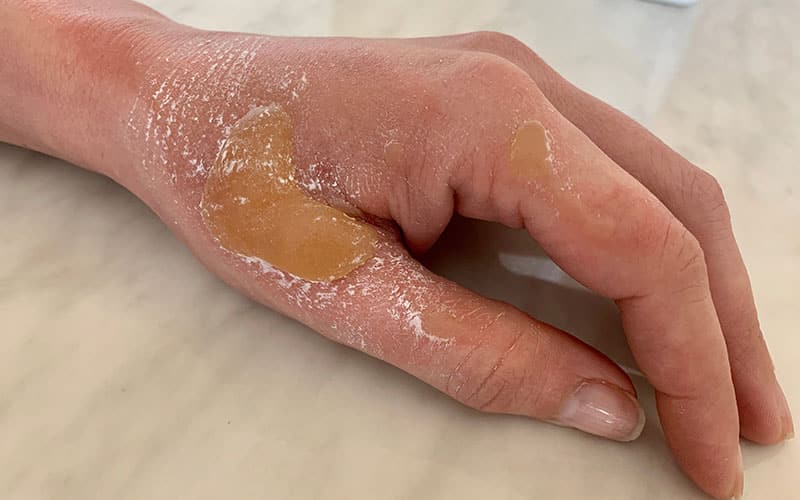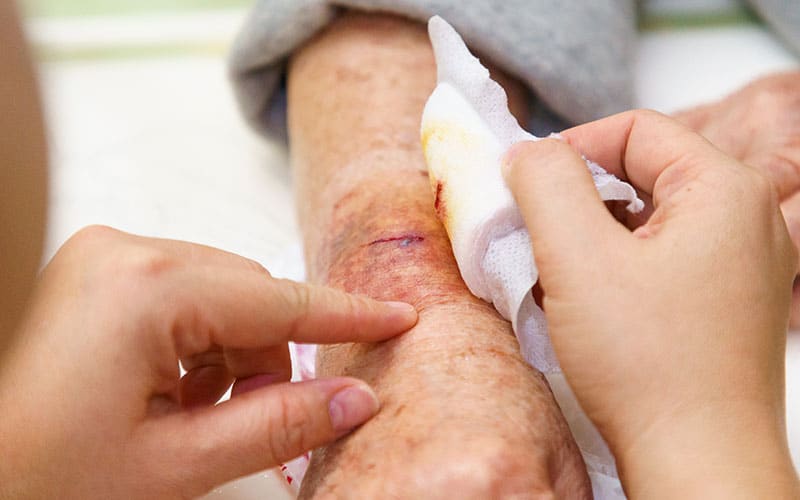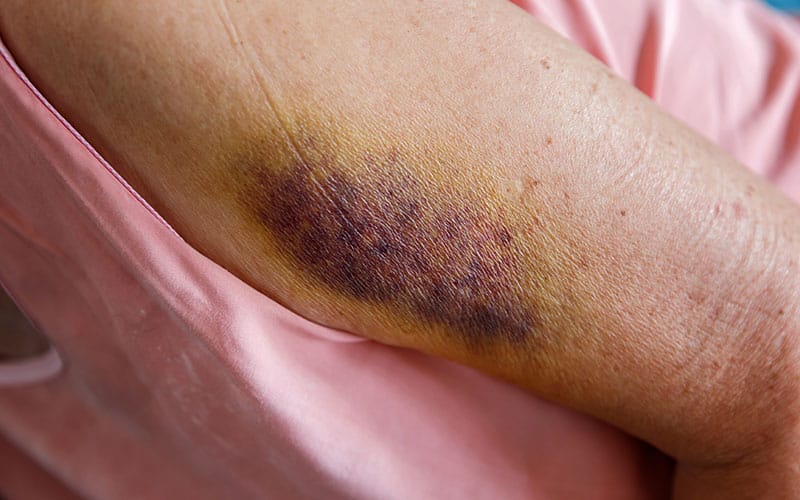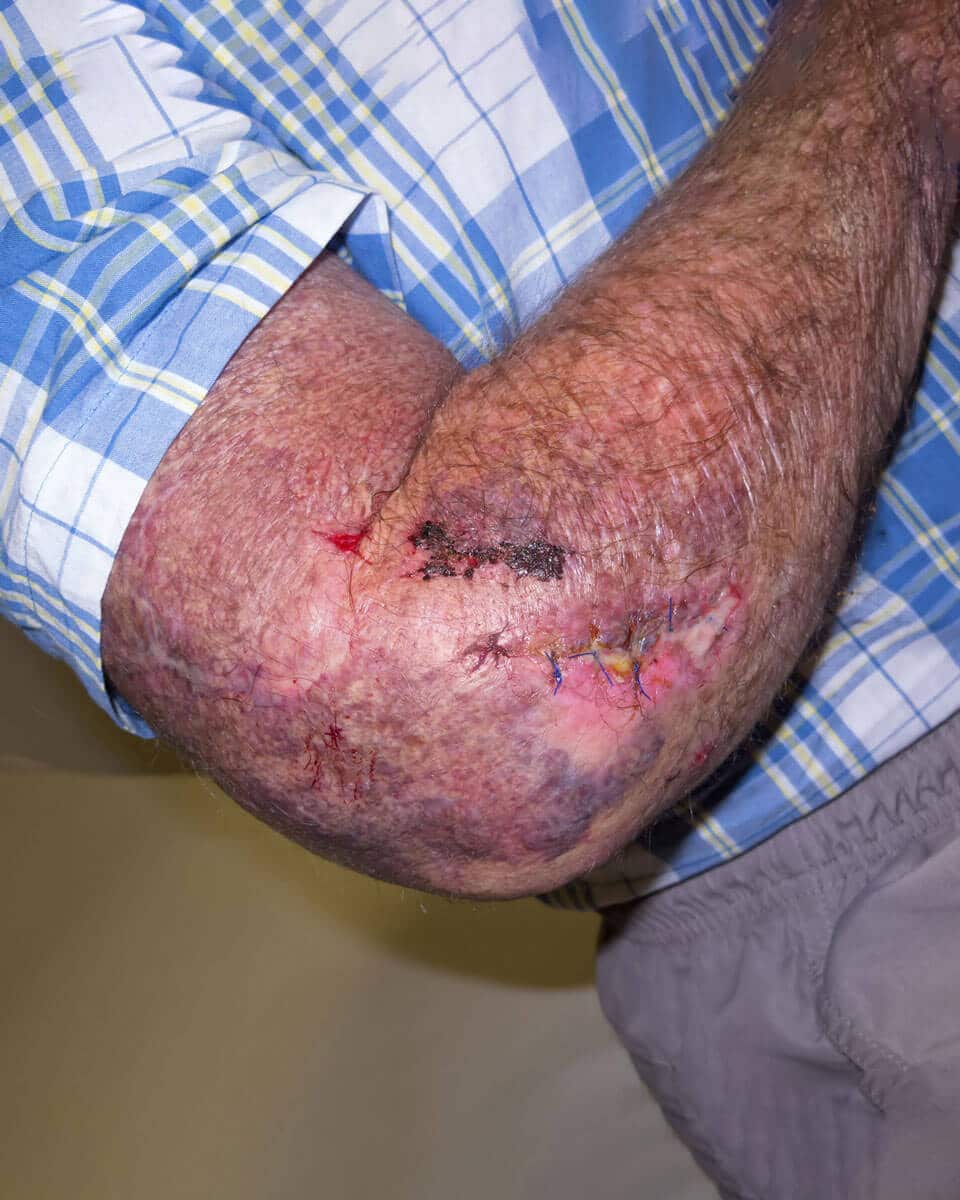Common Reasons to Seek In-Home Wound Care
A wound is any break in the skin (or other body tissue) caused by injury, illness, or a surgical incision. There are three main types of wounds:

Penetrating Wounds
- Puncture wounds or cuts
- Surgical wounds and incisions
- Thermal, chemical, or electric burns
- Bites and stings
- Gunshot wounds

Blunt Force Trauma Wounds
- Abrasions
- Lacerations
- Skin tears

Closed Wounds
- Contusions
- Blisters
- Seroma
- Hematoma
- Crush injuries
With the right care, many minor wounds will heal with relatively no issues at home. However, chronic or more serious wounds can take weeks to even months to heal and require medical intervention. Elderly patients suffering from any of these wounds need routine care to diminish the risk of infection and support healthy recovery. Wound care is usually ordered by your loved one’s physician when offered as part of our home health care service.
For example, following a surgery where an incision is made, your loved one’s physician may request regular wound care as part of their home health care program. When provided as part of our hospice services, wound care is usually directed by our medical team after our initial physical examination or communication with your loved one’s physician.
Factors That Affect Wound Healing
The necessity for chronic wound care increases for those patients who have other conditions or risk factors which may inhibit the healing of a wound. These risk factors include:
- Infection
- A foreign body in the wound
- Age and gender
- Sex hormones
- Stress
- Ischemia
- Diseases such as diabetes, keloids, fibrosis, hereditary healing disorders, jaundice, uremia
- Obesity
- Medications such as glucocorticoid steroids, non-steroidal anti-inflammatory drugs, chemotherapy
- Alcoholism and smoking
- Immunocompromised conditions: cancer, radiation therapy, AIDS
- Nutrition
If your loved one has any of these risk factors, the chances are greater that they’ll face hurdles when it comes to wound healing. For them, at-home wound care services can be a convenient and effective way to guarantee they are on the right path to recovery.

Our Comprehensive Wound Care Services
At Dignity, our team of skilled nurses brings unmatched care and experience into your loved one’s home. Before treatment begins for home health or hospice, our licensed nurses will perform a wound assessment. This informs their wound care treatment plan and helps them understand how best to support faster recovery.
Here is how our nurses customize wound care treatment for our patients:
Your home health or hospice nurse will first perform a careful, head-to-toe assessment of the skin, documenting and noting the condition and cause of any existing wounds.
Next, your nurse will recommend evidence-based treatment plans and create a treatment plan protocol. This will support the specific type of wound and address any factors that may affect its healing. They may make specific recommendations for daily wound care such as the patient’s positioning, cleaning protocol, equipment options, diet, medications, and the most effective products to promote healing.
Then, they deliver patient-centered care following the treatment plan to promote healing. If necessary, your nurse will communicate directly with your loved one’s physician to offer progress updates and address concerns. Skilled nurses have the training and experience necessary to carry out specialized wound treatments, such as compression therapy or negative pressure wound therapy (removing air from a wound dressing to increase blood flow and remove fluid), as well as debridement (removing dead tissue from the wound as needed).
When issues arise, your skilled nurse will find solutions by adapting treatment steps, bringing in specialized equipment, and more.
Do At-Home Wound Care Services Cost Extra?
Luckily, when included as a part of home health or hospice services, wound care comes at no cost to your loved one. That’s because Medicare and Medicaid cover this service at 100%. While we also accept private insurance and Medicare Advantage plans, our patients don’t pay anything for our skilled nurses to create and deliver a custom wound care treatment plan for them.
